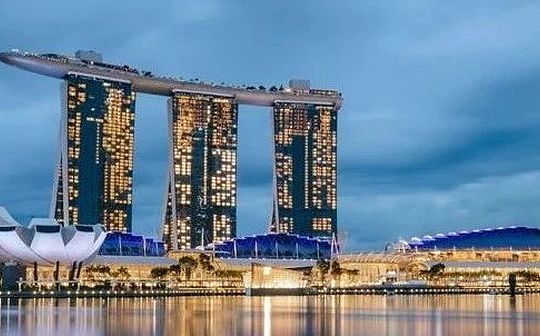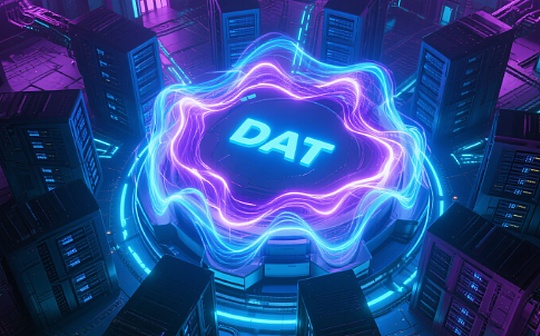Singapore "kills all over the world" of Web3, the era of regulatory arbitrage is over, and a "big retreat" of Web3 is coming

Reprinted from chaincatcher
06/04/2025·12DAuthor:Spinach Spinach Talks about Web3
On May 30, 2025, MAS, Singapore released a response document to new regulations for digital token service provider DTSP, which many people have not realized that this will actually affect the landscape of the entire Asian Web3 industry.
The new regulations were officially implemented on June 30, 2025, and MAS made it clear that there was no buffer period! A large-scale "Singapore Web3 retreat" may have begun quietly.
"We will be extremely cautious." When MAS expresses this attitude without any concealment in this stern-worded consultation document, the Singapore, once hailed as an "Asian crypto-friendly paradise" by Web3 practitioners around the world, is saying goodbye to the past in an unexpected way - not a gradual policy adjustment, but an almost "cliff-like" regulatory tightening.
For those still waiting and watching project parties and institutions, this may no longer be a question of "whether to leave", but a choice of "when to leave" and "where to go".
The glory of the past: the golden age of regulatory arbitrage
Do you still remember Singapore in 2021? When China completely bans cryptocurrency trading and the US SEC wields regulatory sticks everywhere, the small island country welcomes Web3 entrepreneurs with open arms. Three Arrows Capital, Alameda Research, FTX Asia Headquarters... One by one, the resounding names chose to settle here is not only because of the 0% capital gains tax , but also because of the "embrace innovation" attitude that MAS showed at that time.
At that time, Singapore was known as the "holy land of regulatory arbitrage" in the Web3 industry. By registering a company here, you can legally and compliantly provide digital asset services to global users except Singapore, while enjoying the reputation of Singapore’s financial center. This business model of "being in Singapore and caring about the world" once attracted countless Web3 practitioners.
Now, Singapore's new DTSP regulations mean that Singapore completely closes the door to regulatory friendly. In short, its attitude is: to blow all those without licenses out of Singapore in the Web3 industry.
What is DTSP? The definition of "thinking carefully"
DTSP is the full name of the digital token service provider. According to the definition of Article 137 of FSM Act and the content of document 3.10, DTSP includes two types of subjects:
1. Individuals or partnerships operating in Singapore business premises;
II. Singapore companies that conduct digital token services business outside Singapore (whether the company comes from Singapore or elsewhere)

This definition seems simple, but it actually contains murderous intent.
First of all, what is Singapore’s definition of “business place”? The definition of "business place" given by MAS is "any location used by a licensee in Singapore to conduct business (including stalls that can be moved from one location to another).
Pay attention to several key points in this definition:
-
"Any location" : No restrictions must be a formal business place
-
"Including stalls" : Even mobile stalls are included, showing the wide range of supervision
-
"For business conduct" : The key is whether to conduct business activities at that location
Simply put, as long as you are not licensed in Singapore, any business involving digital assets in any place will be risky of violating the law, whether you are a local Singapore company or an overseas company, whether you are targeting local Singapore or overseas customers.
So is it illegal to work from home?
Regarding this issue, Baker McKenzie submitted feedback to MAS in the document

Baker McKenzie Law Firm seeks clarification from MAS on this issue:
"Whether MAS's policy intention is to cover individuals employed by overseas entities but working at home or residential premises in Singapore, given the generality of remote work?"
The concerns of the law firm are very realistic. They list several possible situations for mine-step:
-
Individuals who provide DT services to overseas companies from home (probably of consulting nature)
-
Employees or directors of overseas companies who work in Singapore under remote work arrangements
But at the same time, the law firm also tried to provide some "amulets" for home office workers:
"Based on the drafting of current legislation, it can be argued that family or residential premises should not be included, because family or residential premises are not usually understood as places where licensors conduct their business."
However, MAS poured cold water on this problem:
“Under the provisions of Section 137(1) of the Financial Services and Markets Act, all individuals engaged in providing services for digital token services outside Singapore at a business premises in Singapore are required to obtain a DTSP license unless the individual belongs to a certain category of persons under Section 137(5) of the Financial Services and Markets Act. In this regard, if an individual is located in Singapore and engages in providing services for digital token services to persons outside Singapore (i.e., individuals and non-individuals), the individual is required to apply for a license under Section 137(1) of the Financial Services and Markets Act. However, if an individual is an employee of a foreign registered company providing services outside Singapore, the work that the individual does as part of his employment in a foreign registered company will not itself trigger the licensing requirements under Section 137(1) of the Financial Services and Markets Act.”
as well as
"But if these individuals work in a shared office space or work in an affiliate office of an overseas entity, they are obviously more likely to be included."

To summarize the new rules, it is:
-
Without a license, no individual or company can conduct business in any business premises in Singapore for local or overseas customers.
-
If you are an employee of an overseas employee, working from home is acceptable
But there are many blurrings in the new regulations:
-
MAS has a very vague definition of employees. Is the founder of the project considered an employee, and is the holding of shares considered an employee? It's all MAS who has the final say
-
If you are a BD or salesman from an overseas company, you go to someone else’s shared office to discuss business. Is it considered conducting business in a business place? MAS has the final say
The fuzzy definition of digital token service, may KOL also affect it?
MAS' definition of digital token services is staggeringly wide, covering almost all relevant token types and services. And even the release of research reports is included?
According to the provisions of Article (j) of the First Schedule of FSM Act, the scope of supervision includes:

"Any service related to the sale or offer of digital tokens, including: (1) providing advice related to digital tokens directly or through any form (electronic, printed or otherwise) such as publications, articles, or (2) providing advice related to digital tokens through the publication or dissemination of research analysis or research reports (electronic, printed or otherwise)"
This may mean that if you publish a report in Singapore as a KOL or institution that analyzes the investment value of a certain token, you may theoretically need a DTSP license, otherwise you may be judged as illegal.
Blockchain Association of Singapore sent a soul-searching question to MAS on this issue in feedback:
"Will traditional research reports be identified as related to token sale or offer? How should participants distinguish research reports related to token sale or offer?"
MAS did not give a clear answer, and this ambiguity can be said to make all content creators walk on thin ice.
Which groups may be affected?
Personal identity type (high risk)
Independent practitioners: including developers, project consultants, market makers, miners, etc.
Content creators and KOLs: including analysts, KOLs, community operations, etc.
Core personnel of the project: including core business personnel of founders, BDs, sales, etc.
Institution type (high risk)
Unlicensed exchanges: CEX, DEX
Project parties: DeFi, wallet, NFT, etc.
Conclusion: The end of the regulatory arbitrage era in Singapore
A terrifying reality emerged: Singapore is here this time, and it is necessary to "bomb out" all non-compliant people in Singapore. As long as it is not compliant, almost any activity related to digital tokens may be included in the scope of supervision. Whether you are in a luxury office building or on the sofa at home, whether you are the CEO of a large company or a freelancer, just involve digital token services.
Because there are a lot of gray areas and vague definitions of "business premises" and "conduct business", MAS is likely to adopt a "case-oriented" law enforcement strategy - kill a few chickens first, and then warn the monkeys.
Want to hug the rules temporarily? Sorry, MAS has made it clear that it will approve the DTSP license in an "extremely cautious" manner, and the application will only be approved under "extremely limited circumstances".
In Singapore, the era of regulatory arbitrage has officially ended, and the era of big fish eating small fish has arrived.



 jinse
jinse
